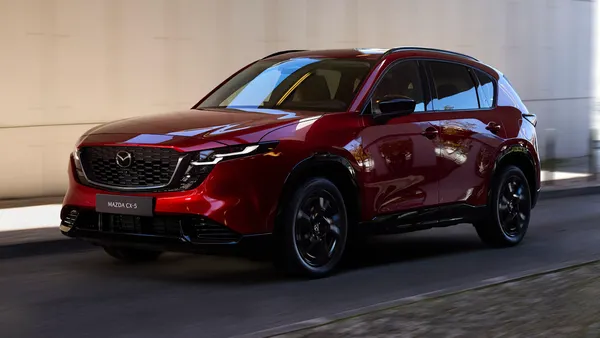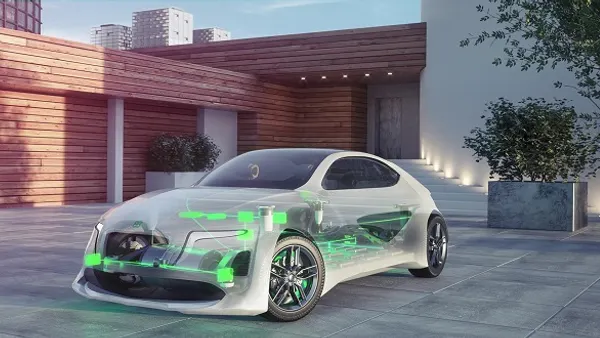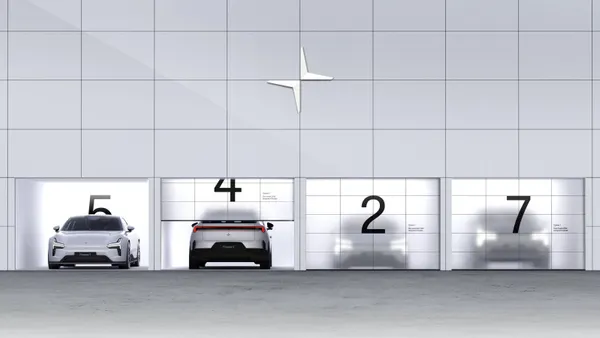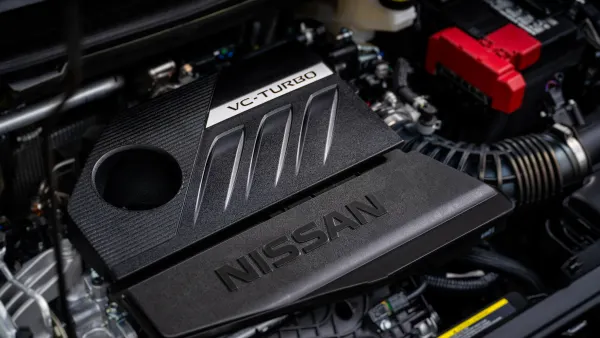Editor's note: This story is part of the WardsAuto digital archive, which may include content that was first published in print, or in different web layouts.
NISSAN SET THE BAR HIGH FOR PREMIUM V-6s when its VQ engine family arrived in 1995 and proceeded to win 14 straight Ward's 10 Best Engines awards.
Along the way, rival brands such as Honda, Mercedes-Benz, Cadillac and Lexus achieved varying degrees of success with their own premium V-6s tuned for both power and refinement.
Hyundai wanted to play in this arena but wasn't ready. Now it is.
The refreshed '12 Genesis sedan, on sale since April, gets a significant performance boost with an improved 3.8L naturally aspirated gasoline V-6 that adds direct injection and makes an extra 43 hp while getting better fuel efficiency than the port-injection engine it replaces.
Rated at 333 hp and 291 lb.-ft. (395 Nm) of torque, this latest offering from Hyundai's Lambda engine family still employs all-aluminum construction and twin overhead cams and carries over the dual continuously variable valve timing and a variable intake system.
The Environmental Protection Agency rates the enhanced engine at 19/29 mpg (12.3-8.1 L/100 km) in city/highway driving, a notable gain over the previous 18/27 mpg (13-8.7 L/100 km).
A higher compression ratio (from 10.4:1 to 11.5:1) also boosts efficiency, while the bore and stroke are unchanged at 96 mm × 87 mm.
The new fuel-economy numbers are competitive for the segment. During a test drive near Ann Arbor, MI, along rural roads, the engine manages better than 20 mpg (11.7 L/100 km) despite heavy flogging at high rpm.
Along the way, the Lambda 3.8L remains amazingly composed with minimal vibration transmitted to the steering wheel.
Any clatter underhood is well-isolated from the cabin, which is no small accomplishment for Hyundai considering the NVH shortcomings associated with its direct-injection 2.4L 4-cyl. in the relatively new Sonata.
It helps that power is conveyed smoothly and efficiently to the wheels via the auto maker's first internally developed 8-speed automatic transmission from South Korea, aided by an enhanced torque converter with lock-up capability.
Whether toggling through gears manually (using Shiftronic) or in automatic mode, the steps are precise and clean. No paddle shifters are available with the V-6.
When it's time to pass, open the throttle wide while cruising along in seventh or eighth gear and the transmission kicks down a full four gears. The engine howls in approval as the Genesis bolts forward.
An aluminum carrier and plastic oil plan underneath make the new transmission lighter.
The 3.8L's torque peak of 291 lb.-ft. arrives on the high side — at 5,100 rpm, while the previous peak of 264 lb.-ft. came in earlier, at 4,500 rpm.
The Genesis sedan arrived in 2009 to great acclaim and received a mild facelift the following year.
Exterior alterations in this second refresh of the sedan include revised headlamps with light-emitting-diode accents; new front bumper and grille design; new 17- and 19-in. wheels; upgraded B-pillar finish; integrated exhaust design and revised rear combination lamps. Interior changes are minimal.
At the top of the Genesis range, the 429-hp Tau direct-injection V-8 powers the R-Spec variant.
Hyundai declines to comment on plans for a refreshed Genesis coupe, or whether the more powerful 3.8L V-6 will appear in the car.
In between the R-Spec and the 3.8L in the sedan will be a smaller 385-hp 4.6L Tau V-8. The mix is expected to remain 65% V-6 and 35% V-8.
Whether the 4.6L V-8 stays in the portfolio much longer remains in doubt. Hyundai already announced it will drop the 4.6L in the Equus flagship sedan, leaving the 5.0L Tau as its sole engine.
Don't be surprised if the 4.6L disappears from the Genesis range, as well, within the next few years. In that application, the 5.0L Tau could be offered both in high-output and detuned versions, Hyundai insiders say.
For this year, the upgraded V-6 represents the most notable change in the Genesis sedan, but the question begs to be asked: Is it too late?
High-powered V-6s were stylish years ago when fuel was cheap. But times have changed and electric vehicles, hybrids, small cars and punchy 4-cyl. engines are finding favor.
Hyundai is not deterred, predicting the mid-luxury segment will climb steadily from 291,000 vehicles this year to 318,000 in 2012 and 340,000 the year after. The Genesis racked up 21,889 deliveries in 2009 and 29,122 in 2010.
Through June, Genesis sales totaled 15,454, up 19.9% from like-2010, which places it eighth in a field of 25 vehicles in Ward's Lower Luxury car segment.
John Krafcik, president and CEO of Hyundai Motor America, says he expects Genesis sales this year to surpass the 30,000-unit threshold easily.
Sales may get a boost from the updated 3.8L, assuming there's still demand for high-output V-6s. No matter what happens with gas prices, expect the Genesis' engine mix to tilt toward the V-6.
'12 Hyundai Genesis 3.8L
Vehicle type: Front-engine, RWD, 5-passenger sedan
Engine: 3.8L direct-injection DOHC aluminum V-6
Power: 333 hp @ 6,400 rpm
Torque: 291 lb.-ft. (395 Nm) @ 5,100 rpm
Transmission: 8-speed Shiftronic auto
Compression ratio: 11.5:1
Bore × stroke (mm): 96 × 87
Base price: $34,200
Fuel economy: 19/29 (12.3-8.1 L/100 km)
Competition: BMW 3-Series; Mercedes C-Class; Cadillac CTS; Infiniti G; Audi A4; Nissan Maxima









